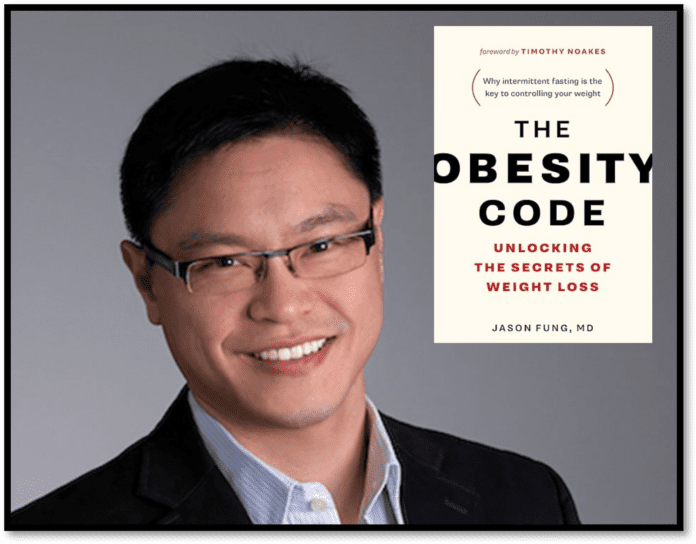Dr. Jason Fung, a prominent Canadian nephrologist, researcher, and New York Times best-selling author, presents a controversial perspective that challenges conventional wisdom in the field of nutrition and weight management. Here’s an analysis of his key arguments and the current scientific discourse surrounding his hypothesis.
Dr. Fung has gained widespread recognition for his work on intermittent fasting and low-carbohydrate diets. His work focuses on the use of intermittent fasting and low-carbohydrate diets to address obesity, type 2 diabetes, and other metabolic disorders. Fung’s approach has gained significant attention, with his books selling over one million copies and his work being cited by major media outlets, including CNN, The New York Times, and Time.
Main Arguments
Dr. Fung contends that calorie restriction as a primary method for weight loss (which he terms “CRaP” – Caloric Reduction as Primary) is ineffective in the long term. His main points include:
- Metabolic Adaptation: Fung argues that the body adapts to calorie restriction by lowering its basal metabolic rate, making sustained weight loss difficult.
- Hormonal Factors: He emphasizes the role of hormones, particularly insulin, in regulating body weight and fat storage
- Long-term Ineffectiveness: Fung cites studies showing that initial weight loss from calorie restriction is often followed by weight regain
Scientific Discourse
While Dr. Fung’s arguments have gained attention, they remain contentious within the scientific community:
- Energy Balance: Many researchers maintain that calorie balance is fundamental to weight loss. They argue that while hormonal factors play a role, they do not negate the importance of overall energy intake.
- Metabolic Adaptation: The extent and impact of metabolic adaptation are debated. Some studies suggest its effects are less significant than Fung claims.
- Adherence vs. Method: Critics argue that the failure of long-term calorie restriction is often due to poor adherence rather than the method itself.
- Intermittent Fasting: Recent research comparing time-restricted eating (a form of intermittent fasting promoted by Fung) to traditional calorie restriction found similar weight loss results when calorie intake was controlled.
Current Perspectives
The scientific community generally acknowledges the complexity of weight loss beyond simple calorie counting:
- Multifactorial Approach: Many experts advocate for a comprehensive approach that considers calorie intake, food quality, meal timing, and individual metabolic factors.
- Personalization: There’s growing recognition that weight loss strategies may need to be tailored to individual needs and preferences.
- Long-term Sustainability: The focus is shifting towards sustainable lifestyle changes rather than short-term diets.
- Role of Insulin: While insulin’s role in weight regulation is acknowledged, its primacy in weight loss, as emphasized by Fung, remains debated.
Conclusion
Dr. Fung’s critique of calorie restriction has sparked important discussions in the field of nutrition and weight management. While his emphasis on hormonal factors and the limitations of simple calorie counting has merit, the scientific consensus still supports the fundamental role of energy balance in weight loss. The debate highlights the need for nuanced, comprehensive approaches to weight management that consider both caloric intake and hormonal factors.





